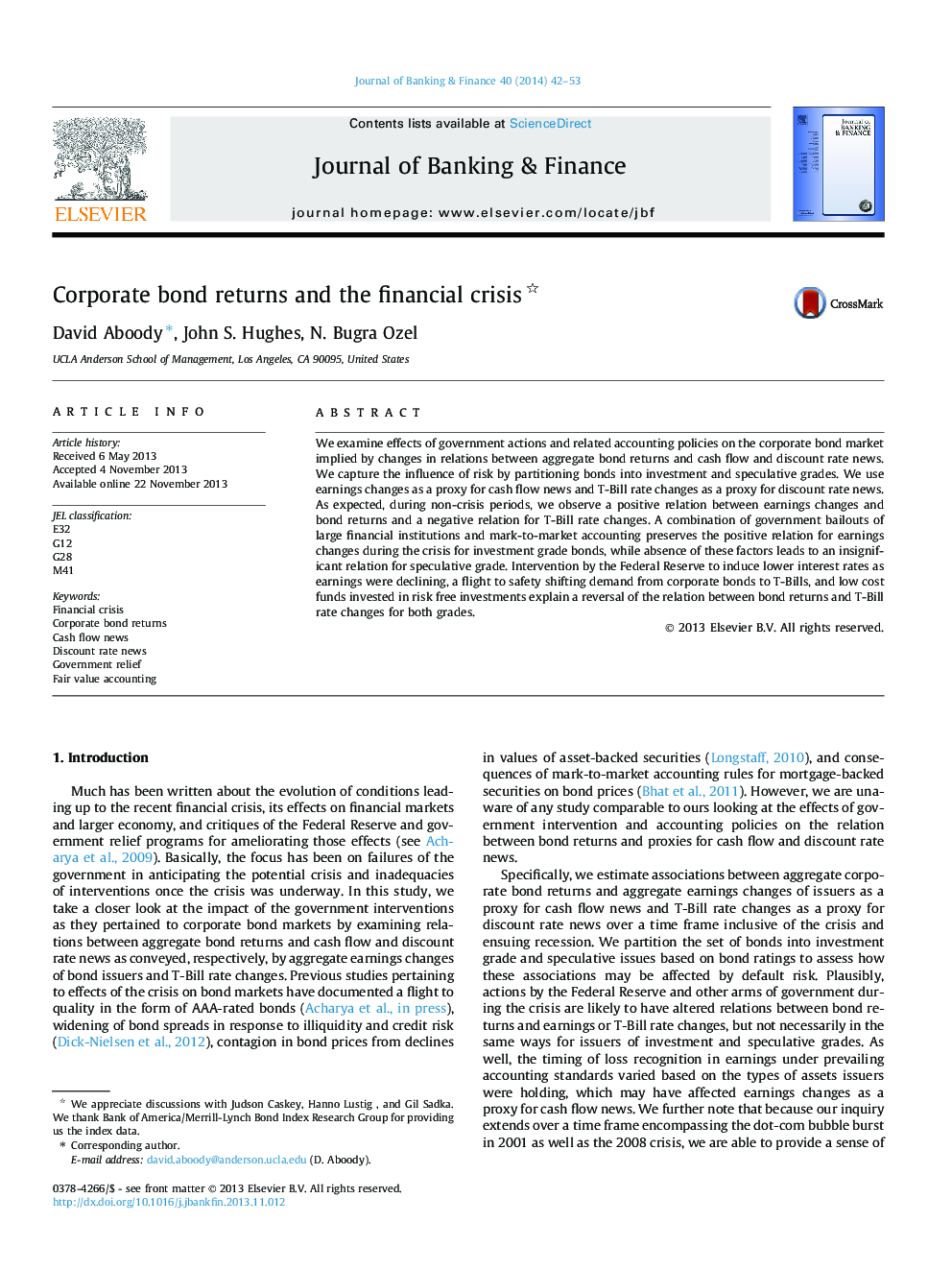| Article ID | Journal | Published Year | Pages | File Type |
|---|---|---|---|---|
| 5089042 | Journal of Banking & Finance | 2014 | 12 Pages |
Abstract
We examine effects of government actions and related accounting policies on the corporate bond market implied by changes in relations between aggregate bond returns and cash flow and discount rate news. We capture the influence of risk by partitioning bonds into investment and speculative grades. We use earnings changes as a proxy for cash flow news and T-Bill rate changes as a proxy for discount rate news. As expected, during non-crisis periods, we observe a positive relation between earnings changes and bond returns and a negative relation for T-Bill rate changes. A combination of government bailouts of large financial institutions and mark-to-market accounting preserves the positive relation for earnings changes during the crisis for investment grade bonds, while absence of these factors leads to an insignificant relation for speculative grade. Intervention by the Federal Reserve to induce lower interest rates as earnings were declining, a flight to safety shifting demand from corporate bonds to T-Bills, and low cost funds invested in risk free investments explain a reversal of the relation between bond returns and T-Bill rate changes for both grades.
Keywords
Related Topics
Social Sciences and Humanities
Economics, Econometrics and Finance
Economics and Econometrics
Authors
David Aboody, John S. Hughes, N. Bugra Ozel,
